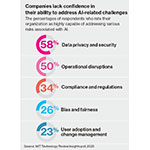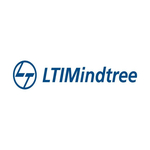State of Process Orchestration and Automation Report reveals “Automation Armageddon” fears as automation risks escalate, while majority of organizations struggle to operationalize AI across their entire business
8 in 10 Organizations Fear Digital Chaos as Business Process Complexity Increases
Alex Crawshaw
camunda@sparkcomms.co.uk
tel +44 (0)20 7436 0420
Camunda, the leader in process orchestration and automation, today released its 2025 State of Process Orchestration and Automation Report, revealing 82% of organizations fear “digital chaos” due to increasingly complex, interconnected, and automated processes. The report highlights that organizations now manage an average of about 50 endpoints to execute tasks that are part of a process in their business. This is an increase of 19% over the past five years, and is contributing to growing business risk.
According to the report, a lack of control has increased compliance risks for 82% of organizations, while 77% report higher risks of core business processes failing. Alarmingly, 82% believe that, if these risks go unchecked, they could lead to what could be described as “Automation Armageddon.”
“End-to-end process orchestration and automation are critical to delivering business outcomes. However, today’s digital infrastructures and processes are both complex and interdependent, making it a significant challenge,” said Kurt Petersen, senior vice president, customer success, at Camunda. “In a constantly evolving landscape, organizations often struggle with siloed tools and technologies, which hinder their ability to streamline operations or achieve full visibility. Without decisive action, automation programs risk overwhelming organizations with fragile solutions, lack of comprehensive governance, excessive total cost of ownership, and increasingly reduced agility to meet changing business needs. Ultimately, companies who can’t get their automation under control will lose out to savvy competitors who have mastered process orchestration and automation.”
AI: the scaling and operationalizing challenge
Artificial intelligence is transforming business operations as organizations leverage large language models (LLMs), machine learning, or other AI capabilities to enhance operations and improve customer experiences. However, in many cases, AI is only deployed as a point solution to tackle a single task, rather than supporting a business-wide strategy. While most organizations are eager to expand their AI capabilities in the next three years, they face significant challenges in effectively scaling and operationalizing AI.
The report reveals:
- 85% of organizations face challenges in scaling and operationalizing AI across their business.
- 84% say a lack of transparency in applying AI applications within business processes is causing regulatory compliance issues.
- 93% believe AI must be fully integrated into orchestrated processes to maximize the return on investment and business value.
Unlocking value through process orchestration
Many organizations have implemented significant automation but often face challenges in effectively managing it across diverse systems and processes. Successful organizations unlock value from automation by leveraging process orchestration as a critical capability for coordinating the moving parts or endpoints of a business process and sometimes even integrating multiple processes.
The report highlights:
- 82% of businesses recognize the need for better tools to manage how their processes intersect.
- 79% report that, while they have implemented significant automation, they lack a way to control, manage, and sustain it effectively.
- 86% say a company cannot have hyperautomation without having process orchestration.
- 81% say, without process orchestration, achieving an autonomous enterprise will be a pipe dream.
“If organizations are to successfully operationalize AI across their entire business, AI applications and services must be orchestrated like any other endpoint within automated business processes. This will ensure they remain compliant and maximize the return on investment from their AI investments. Process orchestration is the key to managing complexity, connecting legacy systems, and coordinating diverse endpoints. Without it, hyperautomation and the autonomous enterprise will remain out of reach for most organizations," added Petersen.
Additional Resources
- To download the report, visit this page.
- To learn more about the report, read the blog article here or visit our webinar.
- For more information about Camunda in general, visit camunda.com
About the report
Camunda commissioned Coleman Parkes to conduct a survey among 800 respondents (350 US, 150 UK, 150, Germany, 150 France) at organizations with at least 1,000 employees. All respondents are either responsible for or significantly involved in process automation in their organization. This survey was conducted online between September 30 and October 28, 2024.
About Camunda
Camunda enables organizations to orchestrate and automate processes across people, systems, and devices to continuously overcome complexity, increase efficiency, and fully operationalize AI. Built for business and IT, Camunda’s leading orchestration and automation platform executes any process at the required speed and scale to remain competitive without compromising security, governance, or innovation. Over 700 companies across all industries, including Atlassian, ING, and Vodafone trust Camunda with the design, orchestration, automation, and improvement of their business-critical processes to accelerate digital transformation. To learn more, visit camunda.com.
View source version on businesswire.com: https://www.businesswire.com/news/home/20250122975479/en/
 Business wire
Business wire 









Add Comment